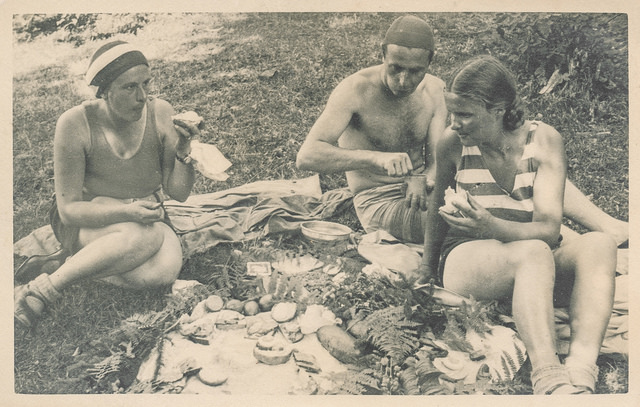Just over a year ago, I decided that I wanted to train for a 5k race.
I had been a runner back in my school days, but I was heading firmly into my mid-30s with a fairly sedentary lifestyle. I had put on weight with my last pregnancy, and I wanted to feel better about myself. Plus, at the time, I was going through a divorce and starting my life over. I wanted to reclaim something that I used to love.
I tried the “Couch to 5k” plan but didn’t have much success with it so I decided instead to just start out running as much of a 5k as I could and walking the rest. In the beginning, I did more walking than running. However, as I ran several times a week, I quickly began to go further and faster. I trained for my first 5k in three weeks just by running a little further each time until I could run about 85 percent of the way without stopping.
What’s interesting about this process is that when I began to run so frequently, I completely lost my appetite. I Googled this phenomenon to find out that it’s called medical anorexia and is a condition where we physically have no desire to eat. Of course, because I was running regularly, I made myself eat healthy foods to keep up my strength, but I had no desire to eat for about two months.
After this experience, I began to take more of a mindful approach to eating. I learned a lot from my loss of appetite, and I’d like to share what I learned in hopes that it may be of benefit.
I found that we often eat out of boredom or habit more than hunger. While I’ve often heard this, I had no idea exactly how true it is for me. When we’re watching TV or entertaining ourselves, we often snack. After going for a couple of months without the desire for food, I realized that my snacking originated from boredom and habit. We can become aware of the triggers to our snacking and choose either healthier snacks or not to snack at all when our desire comes from something other than hunger.
I also began to see patterns of eating for comfort rather than for nourishment.
It seems that we have an emotional relationship with food, and when I had lost my appetite, I realized that I was able to care for my emotions without involving food consumption at all. I do occasionally indulge in comfort food, but I try to put the focus on nourishment rather than over-indulgence to create a balance in my life.
While some of these observations may seem self-evident, I had never given a lot of thought to my eating habits other than choosing what I would like to eat on any given day.
When I began to run, I gave a lot of consideration to body image versus health. I realized that while I might not be high school skinny, I’m in much better physical shape now than I was when I was a smaller size. I’m eating healthier foods, consuming much less fast food and junk food and generally taking better care of my body through running, lifting weights and participating in a yoga class.
I began to dismantle the negative body image attitudes that were so prevalent in my every day life and learned to appreciate myself and the healthy body that I am fortunate to call my own.
Self-care is important when living a mindful life, and it becomes essential that we examine our relationships with food consumption, with our bodies and even with our ideas of health and body image. Having had the curious experience of being without an appetite, I began to see my own patterns. While it’s unlikely that many will suffer from medical anorexia, we can instead take the following steps to help maintain healthy bodies and minds:
1. We can choose to be mindful of the triggers around our eating habits.
2. We can choose to be cognizant of the choices we make when eating.
3. We can be mindful of how our bodies feel when we exercise or participate in other activities as well as how they feel when we are more sedentary.
4. We can make sure that we care for our emotions in ways that are healthy for us and don’t contribute to poor eating habits.
5. We can be aware of thought patterns regarding body image and health to make sure that we are giving ourselves plenty of positive self-talk and appreciation rather than criticism.
Happily, my appetite has long since returned to normal, and I was able to participate in a couple of races and a mud run over the last year. While I don’t obsess about food, I certainly don’t have the same relationship with it that I did before the loss of appetite.
When we begin to take a mindful approach to eating, we can learn a lot about ourselves, our triggers and even the state of our emotions at any given time. Hopefully, that information will allow us to begin to celebrate the bodies that we’ve been given and to care for them gently with nourishing food, healthy amounts of exercise, physical touch and all the other things that we need to keep us healthy and happy in our lives.
We can turn our focus away from weight loss, away from a particular clothing size, weight or body shape, and instead we can focus on having healthy bodies and minds by taking care of them. We can love ourselves for where we are in the moment and make conscious choices for how we nourish ourselves. Our healthy bodies contribute to healthy minds, and we know that taking care of ourselves is an essential part of living healthy lives.
Author: Crystal Jackson
Image: simpleinsomnia/Flickr
Editor: Catherine Monkman







Read 0 comments and reply